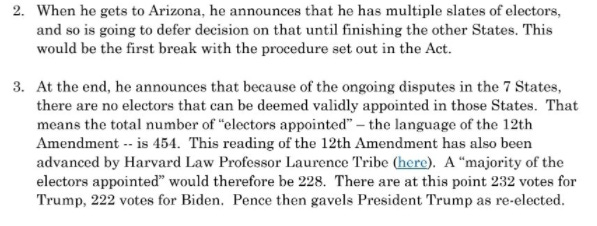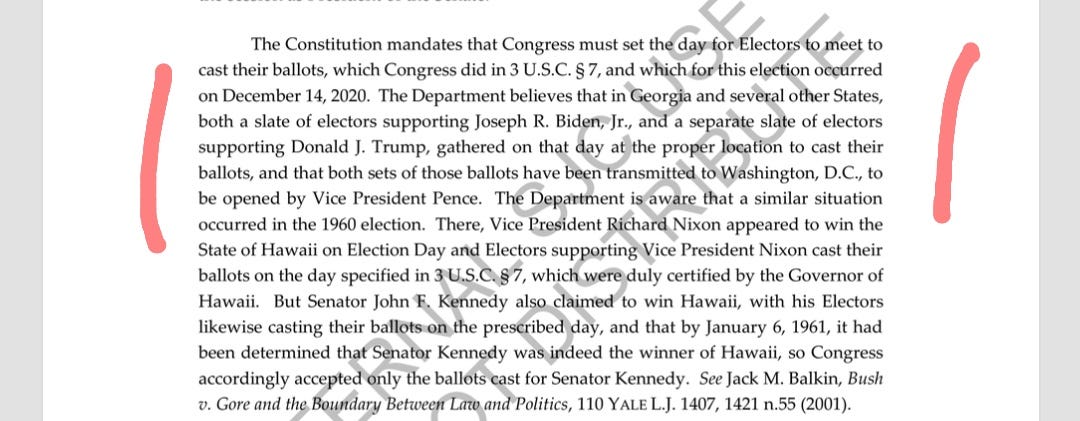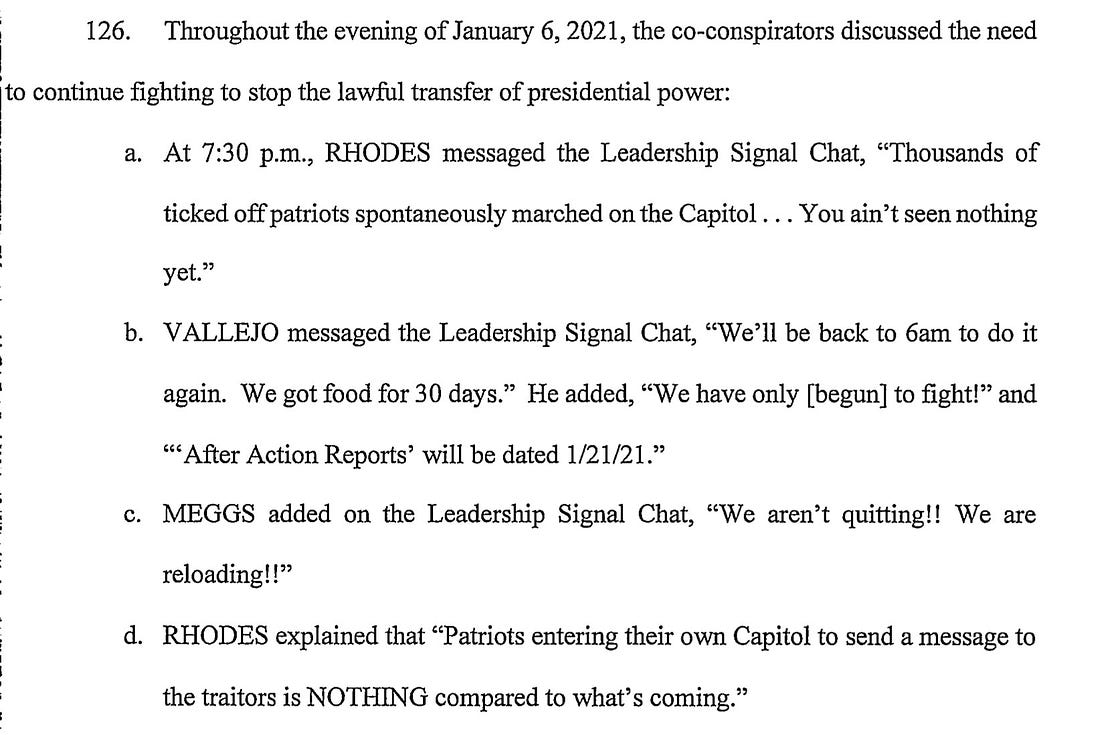Our book, Divided We Stand, looks at the 2020 election and the January 6 insurrection. Some Republican leaders -- and a measurable number of rank-and-file voters -- are open to violent rebellion, coups, and secession. DOJ has charged the head of the Oath Keepers with seditious conspiracy.
In the fall, the Claremont Institute claimed:
Contrary to almost universally false news accounts, which have done great damage, John did not ask the Vice President, who was presiding over the Joint Session of Congress where electoral votes were to be counted on January 6, to “overturn” the election or to decide the validity of electoral votes.
Yesterday, Trump admitted that overturning the election was the whole point:
NEW!
— Liz Harrington (@realLizUSA) January 30, 2022
President Donald J. Trump:
“If the Vice President (Mike Pence) had “absolutely no right” to change the Presidential Election results in the Senate, despite fraud and many other irregularities, how come the Democrats and RINO Republicans, like Wacky Susan Collins, are... pic.twitter.com/9kz05Jwi7y
Trump also gave a speech this weekend.
NEW -- Trump has a new message for this midterm election year: There should be massive protests in DC, NY and Atlanta if prosecutors go after him and, if elected in 2024, he will pardon the January 6 mob that attacked the Capitol and assaulted police.https://t.co/3ZvocWj6bT
— S.V. Dáte (@svdate) January 30, 2022
"Let’s take a step back and drill down on [one] word [of] Trump’s: 'Racist.' It seems to come out of left field...Except that three of the key prosecutors investigating Trump as well as the chair of the House committee, Bennie Thompson, are all Black."https://t.co/HrqlxVbR4l
— Bill Kristol (@BillKristol) January 30, 2022
Trump uses language he knows caused the Jan 6 violence; suggests he’d pardon the Jan 6 defendants, some of whom have been charged with seditious conspiracy; threatens prosecutors; and admits he was attempting to overturn the election.
— Liz Cheney (@Liz_Cheney) January 31, 2022
He’d do it all again if given the chance.
“He could have overturned the election.” This is an admission, and a massively un-American statement. It is time for every Republican leader to pick a side… Trump or the Constitution, there is no middle on defending our nation anymore. pic.twitter.com/Bp3dfn7cBe
— Adam Kinzinger (@AdamKinzinger) January 31, 2022




